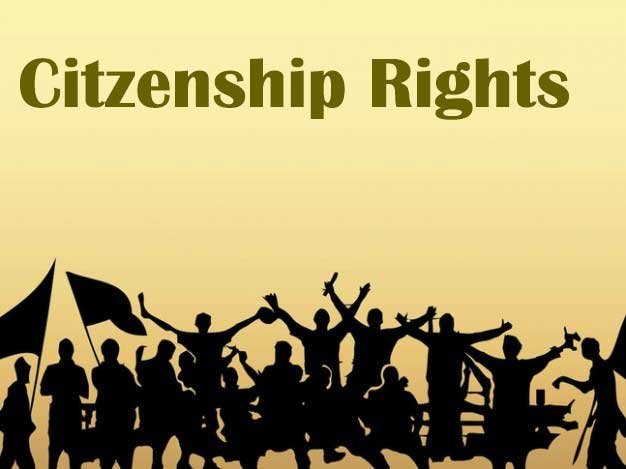Back to: SOCIAL STUDIES JSS1
Welcome to class!
In today’s class, we will be talking about civic rights of a citizen. Enjoy the class!
Civic Rights of a Citizen

Citizenship means belonging to a recognized community, country or state. It means someone becoming a part of a place.
Who then is a citizen?
A citizen is an accepted and recognized member of a community, state or country.
Kinds of citizens
- The good or active citizen
- The passive citizen
- The Bad citizen
Ways of acquiring Nigerian citizenship
There are two ways of acquiring Nigerian citizenship:
- Citizenship by Birth: In Nigeria, a person is a citizen by birth if he or she is born by Nigerian parents, either here in Nigeria or outside Nigeria.
- Citizenship by Naturalization: Citizenship by naturalization occurs when a person who is not a Nigerian gives up his/her home citizenship, the person has lived in Nigeria for at least 15 years and the person applies by writing and proves that he will live in Nigeria and takes an Oath of Allegiance.
- Citizenship by Registration: It applies to the following:
- A person above 21 years, born outside Nigeria by Nigerian parent or grandparent but has never been to Nigeria.
- A foreigner who has been married to a Nigerian.
- Citizenship by Descent: This is a method by which a person claims citizenship of another country because his/her grandparent or great grandparent, as the case may be are citizens of that country.
Rights and Responsibilities of a Citizen: Rights of a citizen can be defined as those privileges granted by law to be enjoyed by a citizen of a place.
Rights of Nigerian citizens
Every citizen of a country has rights and in the case of Nigeria, every Nigerian citizen has civic rights that are backed up by the constitution of the country.
Find below some of the civil rights of a Nigerian citizen:
- Right to life.
- Right to freedom from inhumane or degrading punishment.
- Right to personal liberty.
- Right to dignity.
- Right to a fair hearing.
- Right to freedom of association.
- Right to compensation.
- Right to freedom of expression.
In our next class, we will be talking about Civic Responsibilities and Obligation of a Citizen. We hope you enjoyed the class.
Should you have any further question, feel free to ask in the comment section below and trust us to respond as soon as possible.
